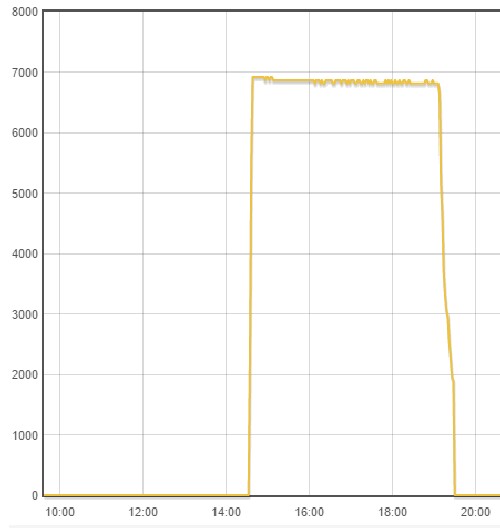WetEV said:
I pay about $0.105 per kWh, and use about 200kWh per month. For me, about $22 a month to drive about 800 miles with a L2 charger.
Dgodfrey said:
I drive about 1,000 miles a month and it works out to about $30/month @ .13/Kwh. Whether it's level 1 or 2 shouldn't have a significant impact although there are more losses with one over the other but I don't remember which IIRC.
sgt1372 said:
Thanks, this is the kind of info I was looking for.
Obviously, my personal results will vary but I'm limited to driving my Bolt 800 miles/month on 10k mile annual limit under the lease. So, I'll be looking for an approximate increase in my electric bill of around $20-30/month.
My current electrical cost probably will be a little higher since I'm still using the L1 cord and have to charge the car for 16-20 hours per day over 2 days to get it back to a full charge from about a 50% SOC.
Should cost less when I get my L2 charger hooked up and can schedule charges to correspond to lower demand/lower rate time periods.
Update on electrical costs:
I finally took a look at my utility bills to see what the cost of charging the Bolt on my L2 charger has been. When I charge the Bolt, it is usually (but not always) at about a 40-50% SOC (with about 100 estimated miles remaining) and the charge time is around 5-6 hours.
I used the "charging complete" emails to note the day that I charged the car and there was a distinct daily usage spike each day I charged the Bolt. However, the daily usage rate is only shown in graph form on my bill (not the actual kwh used each day). So, I had to guess-timate the amount of electricity used on those days.
The last 2 months are the best representation of my current use and during those months I used about 145-150 kwh more electricity when I charged the Bolt, which cost $40-41 at the Tier 2 rate of 27.612 cents/kwh. The Tier 1 rate is 19.979 cents/kwh but I was never below Tier 2 usage and deducting the electricity used charging the Bolt would not drop me into Tier 1.
I have driven the Bolt only an average of 750 miles/month. So, the cost per mile for the past 2 months as been about $81 or about 5.4 cents/mile.
The comparative cost vs gasoline usage is hard to determinate because it depends largely on which car I drive and the type of fuel used. My MR2 gets 25 mpg on regular. My MB and BMW each get 20 mpg on premium. My truck gets barely 12 mpg on diesel. I use to get about 35 mpg on regular from the 2 Priuses that I previously owned, but that usage isn't currently relevant to me.
I drive the MB & BMW more than the MR2 & truck, so using them for comparison, driving 1500 miles at 20 mpg would use about 75 gallons of gas costing about $3.30/gal (at current local pricing for premium gas) which would equal about $247.50 (16.5 cents/mile) resulting in a "savings" of about $166.50 or $83.25/month or 11.1 cents/mile driving the Bolt instead of the MB or BMW.
That's actually much better than I expected and is a good reason to choose to drive the Bolt whenever range is not an issue.













